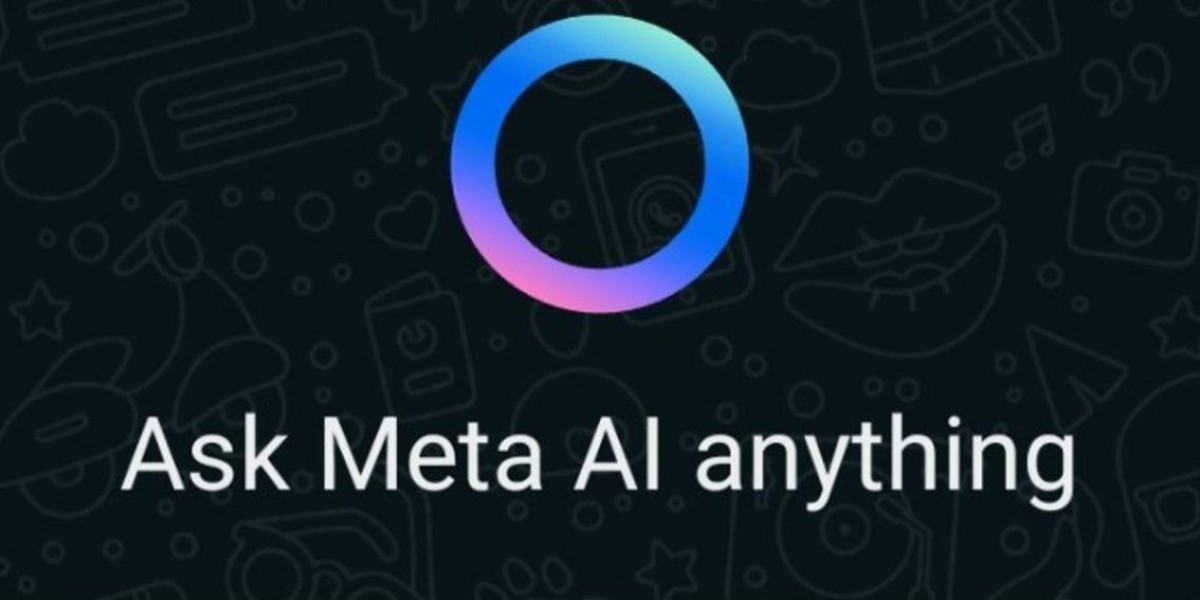In recent years, WhatsApp AI has become a transformative technology, revolutionizing how businesses and individuals communicate. This blend of WhatsApp’s globally popular messaging platform and advanced AI capabilities is not just about text-based conversations anymore. With AI integration, WhatsApp is now equipped with a range of smart features designed to improve user engagement, streamline business processes, and bring automation to daily tasks.
This blog will explore the significance of WhatsApp AI, its applications, and why it's gaining momentum as a vital tool in digital communication.
1. What is WhatsApp AI?
WhatsApp AI refers to the integration of artificial intelligence technologies with the WhatsApp platform. AI enables the platform to understand user input, automate responses, personalize interactions, and manage tasks such as answering frequently asked questions, processing payments, and even managing appointments.
Whether you're a small business looking to streamline communication with customers or an individual who wants a more interactive experience, WhatsApp AI offers incredible features to enhance user experience.
2. The Evolution of AI in Messaging
Messaging applications like WhatsApp started as simple text-based communication tools, but with AI advancements, these platforms have transformed. Today, WhatsApp AI can recognize speech, translate languages, automate customer service, and even detect the sentiment behind messages.
One of the biggest breakthroughs in WhatsApp AI is the use of natural language processing (NLP). NLP allows AI to understand and respond to user messages in a way that feels conversational, which is essential in creating an authentic communication experience.
3. Key Features of WhatsApp AI
- Intelligent Chatbots: AI-powered chatbots on WhatsApp are designed to answer questions, guide users through processes, and perform tasks like booking appointments. These bots can respond instantly, providing a seamless experience for users.
- Automation of Routine Tasks: With WhatsApp AI, routine tasks like appointment reminders, order confirmations, and payment requests can be automated. For example, when a customer makes a purchase, an AI-driven WhatsApp message could automatically confirm their order, reducing the need for manual intervention.
- Data-Driven Personalization: AI on WhatsApp uses data analytics to understand user preferences and personalize responses. This can enhance the user experience, making interactions feel more personal and engaging. For businesses, personalized messages can drive higher engagement and customer loyalty.
- Multilingual Support: WhatsApp AI supports multilingual interactions, breaking down language barriers and making it easier for global companies to engage with diverse customers. AI-based language translation tools help ensure that messages are understood, regardless of the language used.
- Sentiment Analysis: Sentiment analysis tools can gauge the emotional tone of messages, allowing companies to respond with empathy and adapt their communication strategies based on customer mood. This is especially beneficial for customer service, where a prompt response can make all the difference.
4. The Role of WhatsApp AI in Business Communication
For businesses, WhatsApp AI has become a crucial tool in enhancing customer service, marketing, and sales. Here’s how:
- Enhanced Customer Support: AI-powered chatbots can answer customer questions 24/7. This constant availability helps businesses provide immediate assistance, leading to improved customer satisfaction.
- Streamlined Sales Process: WhatsApp AI can assist in lead qualification, guiding potential customers through the sales process, answering product-related questions, and even suggesting products based on their past behavior.
- Automated Follow-Ups: Following up with leads or customers can be time-consuming, but with WhatsApp AI, companies can automate these messages, ensuring that customers receive timely follow-ups and feel valued.
5. WhatsApp AI for Personal Use
It’s not just businesses that benefit from WhatsApp AI. Everyday users also find it helpful in managing their tasks, staying connected, and organizing information. AI can assist with everything from managing to-do lists to sending reminders, scheduling meetings, and even making social plans. As a result, WhatsApp AI makes life easier by keeping users connected and organized.
6. Privacy Concerns and Limitations of WhatsApp AI
Despite its many advantages, WhatsApp AI has raised privacy concerns, as AI technology often requires access to user data to function effectively. WhatsApp has implemented strong encryption and privacy policies to protect users, but users need to stay informed about how their data is managed.
There are also limitations to consider. While AI has improved significantly, it’s not perfect, and sometimes misunderstandings or errors can occur, especially with complex language or nuanced emotions. As AI continues to evolve, these limitations will likely be addressed, making WhatsApp AI even more reliable and effective.
7. The Future of WhatsApp AI
The future of WhatsApp AI is promising. As artificial intelligence technologies continue to develop, we can expect even more advanced capabilities from WhatsApp AI, such as improved language understanding, deeper personalization, and more efficient automation tools. This progress will help businesses and users stay connected, improve productivity, and ultimately transform digital communication.



